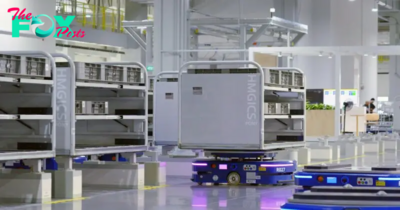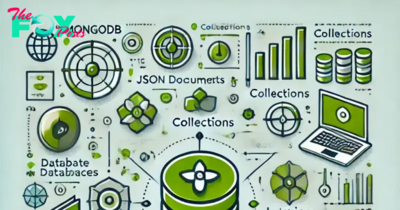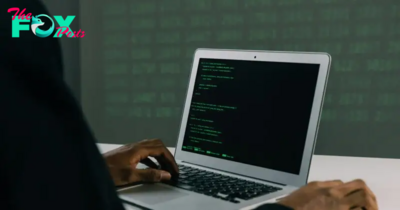Technology
How Blockchain Technology Could Change Academic Credentials Verification
The verification of academic credentials has long been a cumbersome, often slow process that can hinder students’ progress in embarking on their professional journeys or continuing their education. Traditionally, the verification of diplomas, certificates, and degrees requires manual effort, time, and sometimes considerable financial resources. However, the emergence of blockchain technology offers a revolutionary solution that might just transform how educational credentials are verified and managed.
Among the many tasks students manage, such as juggling assignments, studying for exams, and balancing homework, one challenge that often arises is proving the legitimacy of their academic achievements. This is especially pertinent when applying for jobs or further studies. In an era where the question of who can write an essay for you is just as common as inquiries about the authenticity of educational qualifications, the stability and security of blockchain come as a welcome innovation.
How Blockchain Works
Understanding Blockchain Basics
To understand its applications in academia, one must first understand what blockchain is. Essentially, it is a distributed ledger technology that records transactions with an immutable cryptographic signature known as a hash. Once data is entered into the blockchain, it becomes unchangeable, thus providing a secure and transparent system that safeguards the integrity and reliability of the data.
The Decentralized Nature of Blockchain
Differing from traditional databases that are controlled by a central authority, blockchain disperses its data across a network of computers, enhancing its resistance to fraud and hacking. This decentralization ensures that no single entity can own or manipulate the information, which is crucial for maintaining the integrity of academic records and preventing any unauthorized changes or breaches.
Blockchain in Academic Credential Verification
Immediate Benefits for Students and Institutions
Blockchain has the potential to greatly enhance the efficiency of credential verification processes, making them quicker, more cost-effective, and more accessible. For students, this means no more waiting for weeks to get their credentials verified for a job application or further studies. Additionally, blockchain technology can alleviate administrative loads for schools, enabling them to devote more resources to enhancing educational quality and supporting students.
Enhancing Security and Trust
The immutable characteristic of blockchain technology guarantees that once academic records are recorded, they are permanently secured and cannot be modified. This feature addresses common issues like diploma fraud and the creation of fake degrees, instilling greater trust among employers and educational institutions regarding the validity of academic credentials. This robust security helps maintain a high standard of integrity and accountability in the verification process.
Global Accessibility and Portability
Blockchain makes academic credentials universally accessible and verifiable. Whether students are applying for a job halfway across the world or continuing their education in another country, blockchain-enabled credentials can be easily verified without the hassle of dealing with numerous educational bodies or language barriers. This accessibility empowers students to pursue opportunities globally without fearing credential recognition issues.
Future Prospects and Challenges
Integrating Blockchain Across Schools and Colleges
For blockchain to effectively change how academic credentials are managed, widespread adoption across schools, colleges, and universities is necessary. Implementing blockchain Technology requires a substantial investment in Technology and training, which may pose a challenge for some Educational institutions.
Additionally, the integration process must be tailored to fit different educational systems and their unique needs, which can vary widely across regions. Stakeholders must also engage in continuous dialogue to address the scalability challenges that come with blockchain technology, ensuring that solutions can grow and adapt as student populations expand.
Regulatory and Ethical Considerations
Despite its many advantages, blockchain technology also presents challenges related to privacy and data management, prompting important discussions and considerations. Students would need assurances that their personal and academic information is handled ethically and in compliance with global data protection regulations.
Furthermore, the decentralized nature of blockchain could introduce complexities in aligning with varied international laws and educational policies, making uniform standards essential. It is also critical that all parties involved understand their roles and responsibilities in safeguarding student data against unauthorized access.
The Path Forward
As blockchain technology continues to evolve, its integration into the academic sector looks increasingly promising. However, this will require collaboration between educators, technologists, and policymakers to ensure that the benefits of blockchain can be fully realized without compromising the rights and privacy of students.
To facilitate this, a framework for ongoing innovation and assessment should be developed to monitor the effectiveness and impact of blockchain applications in Education. Regular updates and adaptations to this framework could help in keeping pace with both technological advancements and the evolving needs of the Education sector.
Conclusion: A New Era for Academic Verification
Blockchain Technology has the potential to redefine the landscape of academic credential verification, offering a more secure, efficient, and transparent way to manage Educational qualifications. As students move forward in their academic and professional journeys, embracing such innovations can provide them with a distinct advantage, allowing them to navigate the complexities of job applications and further studies with greater ease and confidence. Whether they are turning in their homework or planning their next Educational step, understanding and leveraging the latest technological advancements like blockchain can significantly enhance their learning experience and academic career.
-

 Technology1h ago
Technology1h agoPublic health surveillance, from social media to sewage, spots disease outbreaks early to stop them fast
-

 Technology2h ago
Technology2h agoTikTok, PTA host youth safety summit in Pakistan | The Express Tribune
-

 Technology6h ago
Technology6h agoWhy a Technocracy Fails Young People
-

 Technology18h ago
Technology18h agoTransplanting insulin-making cells to treat Type 1 diabetes is challenging − but stem cells offer a potential improvement
-

 Technology19h ago
Technology19h agoJapan's $26 billion deep sea discovery sparks serious environmental concerns | The Express Tribune
-

 Technology23h ago
Technology23h agoShould I worry about mold growing in my home?
-

 Technology23h ago
Technology23h agoBlurry, morphing and surreal – a new AI aesthetic is emerging in film
-

 Technology1d ago
Technology1d agoSpaceX’s Starship advances in spaceflight despite booster landing failure | The Express Tribune



























